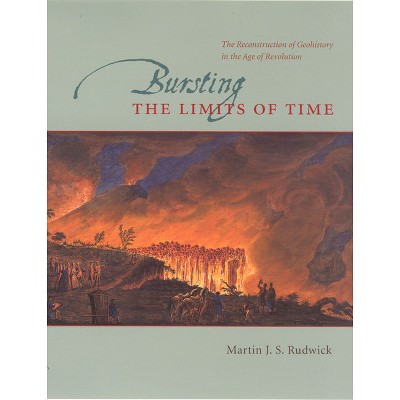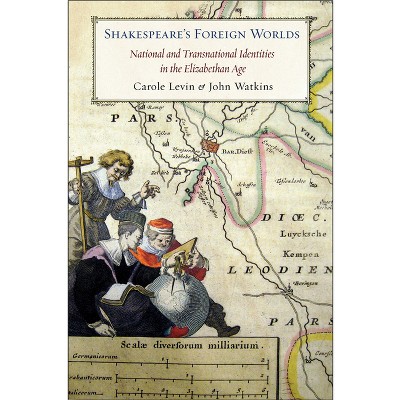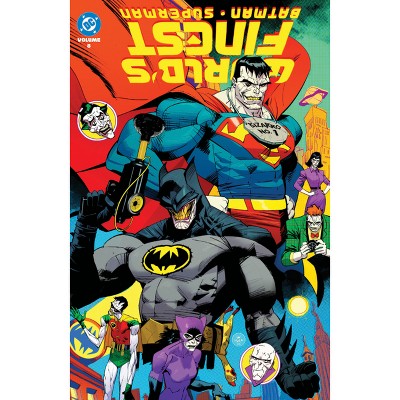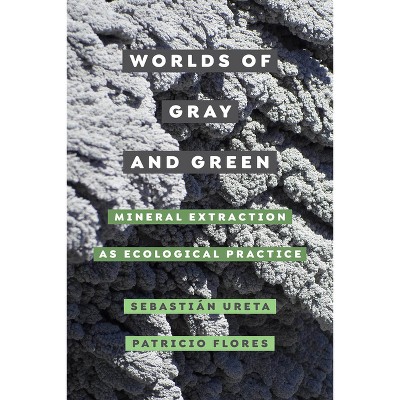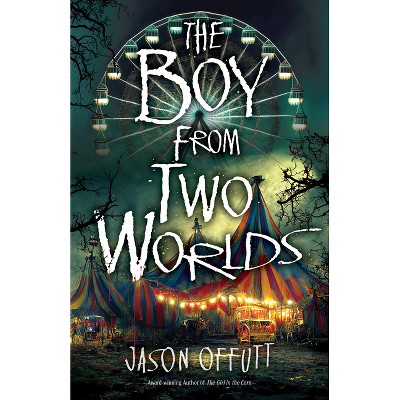Sponsored

Worlds Before Adam - by Martin J S Rudwick (Paperback)
In Stock
Sponsored
About this item
Highlights
- In the late eighteenth and early nineteenth centuries, scientists reconstructed the immensely long history of the earth-and the relatively recent arrival of human life.
- About the Author: Martin J. S. Rudwick is research associate in the department of History and Philosophy of Science at the University of Cambridge and professor emeritus of history at the University of California, San Diego.
- 648 Pages
- Science, History
Description
Book Synopsis
In the late eighteenth and early nineteenth centuries, scientists reconstructed the immensely long history of the earth-and the relatively recent arrival of human life. The geologists of the period, many of whom were devout believers, agreed about this vast timescale. But despite this apparent harmony between geology and Genesis, these scientists still debated a great many questions: Had the earth cooled from its origin as a fiery ball in space, or had it always been the same kind of place as it is now? Was prehuman life marked by mass extinctions, or had fauna and flora changed slowly over time? The first detailed account of the reconstruction of prehuman geohistory, Martin J. S. Rudwick's Worlds Before Adam picks up where his celebrated Bursting the Limits of Time leaves off. Here, Rudwick takes readers from the post-Napoleonic Restoration in Europe to the early years of Britain's Victorian age, chronicling the staggering discoveries geologists made during the period: the unearthing of the first dinosaur fossils, the glacial theory of the last ice age, and the meaning of igneous rocks, among others. Ultimately, Rudwick reveals geology to be the first of the sciences to investigate the historical dimension of nature, a model that Charles Darwin used in developing his evolutionary theory. Featuring an international cast of colorful characters, with Georges Cuvier and Charles Lyell playing major roles and Darwin appearing as a young geologist, Worlds Before Adam is a worthy successor to Rudwick's magisterial first volume. Completing the highly readable narrative of one of the most momentous changes in human understanding of our place in the natural world, Worlds Before Adam is a capstone to the career of one of the world's leading historians of science.Review Quotes
"Like its predecessor, Worlds Before Adam is the product of painstaking research. It appears dauntingly long but is a delight to read. Rudwick's style is lucid and engaging throughout, and he is unfailingly courteous to his nonspecialist readers, ensuring that all terms and concepts are fully explained and avoiding unnecessary jargon. The book's strictly chronological arrangement gives it a strong narrative thrust, and its many beautifully printed illustrations and generous quotations from original sources enhance the sense of primary contact with the evidence. . . . In these two graceful and judicious volumes, the culmination of a distinguished career, Rudwick has restored geology to its rightful historical place at the heart of modern scientific culture."
--Ralph O'Connor "Science" (9/12/2008 12:00:00 AM)"Magisterial...A thoroughly engaging and utterly sympathetic treatment of the notable figures who laid the foundation for modern geology in the period between 1820 and 1845, their inspirations and intellectual triumphs, and their stubbornly held misconceptions....With their highly individualistic flair and immense erudition, this volume and its predecessor are not just essential reading for any scientist; they are also landmark volumes in the history of ideas and a brilliant scholarly achievement."
--Keith Thomson "Times Higher Education" (7/24/3008 12:00:00 AM)" Both [Rudwick's] books, indeed, read like Dickens novels; take time to read them at leisure and they will enrich your life. . . . For those who have read Bursting the Limits of Time, Worlds Before Adam probably needs no recommendation, since it maintains the same high standards. For those who haven't, Worlds Before Adam might whet their appetite to read Bursting the Limits of Time. I hope this latest book will also attract the attention of many people from outside the Earth sciences, who thus can become aware of the fascination of geological discoveries." --Cor F. Winkler Prins, Geological Journal--Cor F. Winkler Prins "Geological Journal"
"Worlds before Adam is at once an important synthesis, a brilliant essay which bestows an immense scholarship upon an original and well-carried argument, and an elegantly written and composed book as pleasant to read as a novel. It will also stand as a reference book, easy to consult by anyone professionally or personally interested in geology and palaeontology and their historical and epistemological implications."--Claudine Cohen "British Journal for the History of Science"
"Worlds Before Adam is rich and thought-provoking."--Brenda Maddox "Literary Review" (10/1/2008 12:00:00 AM)
"A work of such excellence as to recommend it to anyone."--Paul D. Brinkman "Reports of the National Center for Science Education"
"An ultimate source of knowledge on the history of geoscience in the early XIX century. . . . This book looks as classical as those old works by Buckland or Lyell discussed in its text. The reviewer recommends Rudwick's book for everyone in geology and palaeontology."--D.A. Ruban "Zentralblatt fuer Geologie und Palaontologie"
"Any student of paleontology or geology will need this book, if he or she is at all interested in the history of the science. . . . Rudwick has captuired the essence of the Age of Enlightenment, and the reader is left with a sense of the age in which these scientists were working, their difficulties, and the immensity of their discoveries."--Greg Sweatt "Fossil News"
"Despite its length and the complexity of its subject, the book is wonderfully easy to read. Rudwick has a rare gift for talking neither down to nor over the head of the non-specialist reader: no prior knowledge of geology or its history is required and readers in a hurry will appreciate the clear summaries of 'the story so far' with which each of the thirty-six short and snappy chapters concludes. The story retains its fascination right up to the last page."--Ralph O'Connor "History Today" (11/1/2008 12:00:00 AM)
"Rudwick's account follows on from his magisterial Bursting the Limits of Time, which painted an unrivalled portrait of geology's first days as a tardy arrival to the high table of respectable sciences. . . . Rudwick's book is a culmination of forty years of research into the history of geology, and seals his reputation as the doyen of the subject. His writing is always clear, often entertaining, unrelentingly scholarly, and, appropriately enough for geology, he leaves no stone unturned. . . . Any reader interested in the development of the concept of geological time should read Martin Rudwick's book--one could argue that the awareness of deep time has changed human perception of our place in the cosmos more than any other discovery. "--Richard A. Fortey "Times Literary Supplement" (10/15/2008 12:00:00 AM)
"Rudwick's books are myth-busters. . . . Rudwick highlights an underappreciated, glorious advance in human thought, the documentation of which is a rather glorious achievement itself."--Victor R. Baker "Nature" (7/24/2008 12:00:00 AM)
"We take for granted that Earth has a deep history divided into eras such as the Mesozoic, with its monstrous dinosaurs and catastrophic meteoroid impacts. But when and how was this geohistorical narrative established? This book, the sequel to Bursting the Limits of Time, is a masterly exploration of the nineteenth-century roots of this particular scientific revolution. Here Rudwick shows how scientists such as Georges Cuvier, William Buckland and Charles Lyell first revealed and then reconstructed a narrative for the Earth based on direct observation of rocks and fossils."--Douglas Palmer "New Scientist"
Choice Outstanding Academic Title, 2008-- "Choice"
About the Author
Martin J. S. Rudwick is research associate in the department of History and Philosophy of Science at the University of Cambridge and professor emeritus of history at the University of California, San Diego. He is the author of Bursting the Limits of Time, The Meaning of Fossils, The Great Devonian Controversy, Scenes from Deep Time, and Georges Cuvier, all published by the University of Chicago Press. He was awarded the Sarton Medal of the History of Science Society in 2007.





